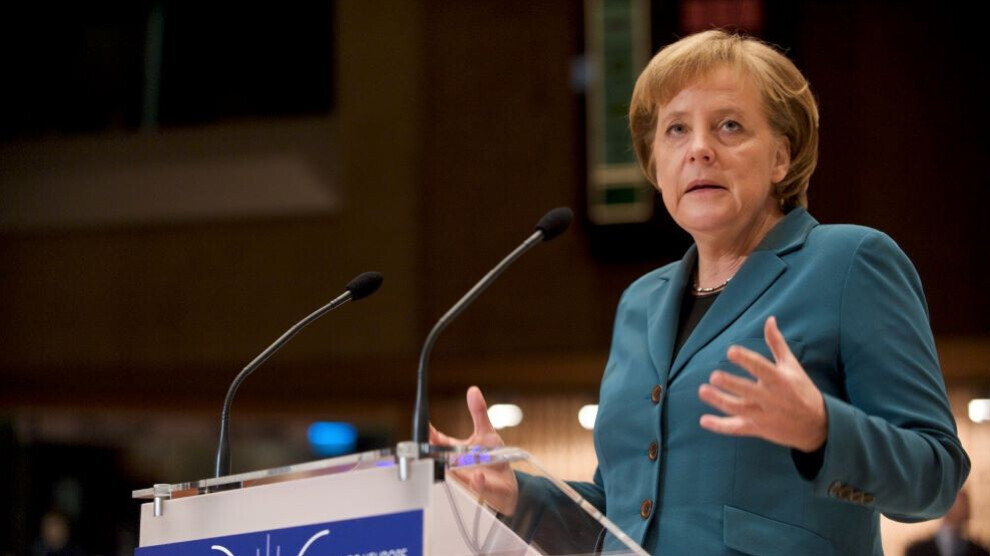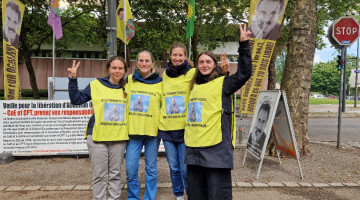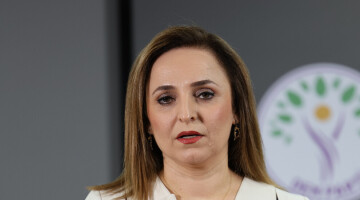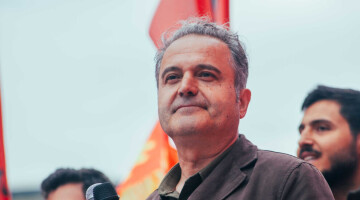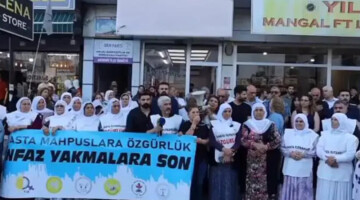At the spring session of the Parliamentary Assembly of the Council of Europe (PACE), German Chancellor Angela Merkel called for the implementation of the judgments of the European Court of Human Rights (ECtHR). All judgments, especially those on political prisoners, must be respected and enforced immediately, she said.
"All around us we see basic human rights, not least freedom of the media and freedom of expression, being curtailed. If we shy away from confronting the fact that our fundamental rights, the heart of our democratic aspirations, are being violated, this would call into question our entire European vision," Merkel said. The rule of law, she said, is "an essential prerequisite for citizens' trust in their state and in its institutions. People must be able to trust that their state will fulfill the obligations it has entered into under international law and that it is therefore subject to international law and the courts. This trust is a precondition for a functioning and stable democracy."
It is worrying that "in some European countries the separation of powers is being called into question and the rights of the judiciary are being curtailed. The European Court of Human Rights is available to more than 800 million people across the European continent because their rights are enshrined in the European Convention on Human Rights and reflected in their respective national legal systems. Yet many countries hesitate when it comes to actually implementing judgments of the Court, or do not implement them at all. Therefore, it is important that all judgments, especially those concerning political prisoners, are respected and enforced immediately. We cannot tolerate any precedence of national law over the rights enshrined in the European Convention," the Chancellor said.
Turkey's withdrawal from the Istanbul Convention
Merkel mentioned Turkey in her speech only in connection with its withdrawal from the Istanbul Convention: "We are celebrating the 10th anniversary of the opening for signature of the Istanbul Convention, which sets standards for combating violence against women and domestic violence. Therefore, I deeply regret that Turkey has decided to withdraw from this convention. I would have liked it to stay, and I call on all members of the Council of Europe who have not yet done so to sign the Convention. Women's rights are human rights. Women's rights cannot be ignored, and any violation of these rights is a crime - and must be named as such. This is all the more important as violence against women increases against the backdrop of the Covid-19 pandemic."
Selahattin Demirtaş and Osman Kavala in prison despite ECtHR Ruling
The Council of Europe is an international organization independent of the EU, to which almost all European countries belong, including Turkey and Russia. Germany currently chairs the Committee of Ministers. Currently, the best-known cases in which Turkey has not implemented ECtHR rulings on political prisoners are former HDP leader Selahattin Demirtaş and civil rights activist and cultural patron Osman Kavala.
The European Court of Human Rights had ruled for the first time in November 2018 that Demirtaş's two-year pre-trial detention at the time was unlawful. This ruling was undermined by an ad hoc conviction in one of the countless criminal cases against the Kurdish politician. In December 2020, the Grand Chamber of the Strasbourg Court considered the case and again ordered Demirtaş's release. This decision was also ignored by the Turkish judiciary.
Osman Kavala has been in Turkish custody since October 2017. In his case, the ECtHR had ordered his immediate release in December 2019.

